Are you a vegan athlete looking to take your performance to the next level? You’re not alone! More and more athletes are embracing plant-based diets, but let’s face it – ensuring you’re getting all the right nutrients can be a bit of a puzzle. Don’t worry, though – we’ve got your back! In this article, we’ll dive into the world of essential nutrients that every vegan athlete needs to thrive. From protein powerhouses to vital vitamins, we’ll show you how to fuel your body for success. Ready to unlock your plant-powered potential? Let’s go!
Table of Contents
The Protein Predicament: Plant-Based Power Sources
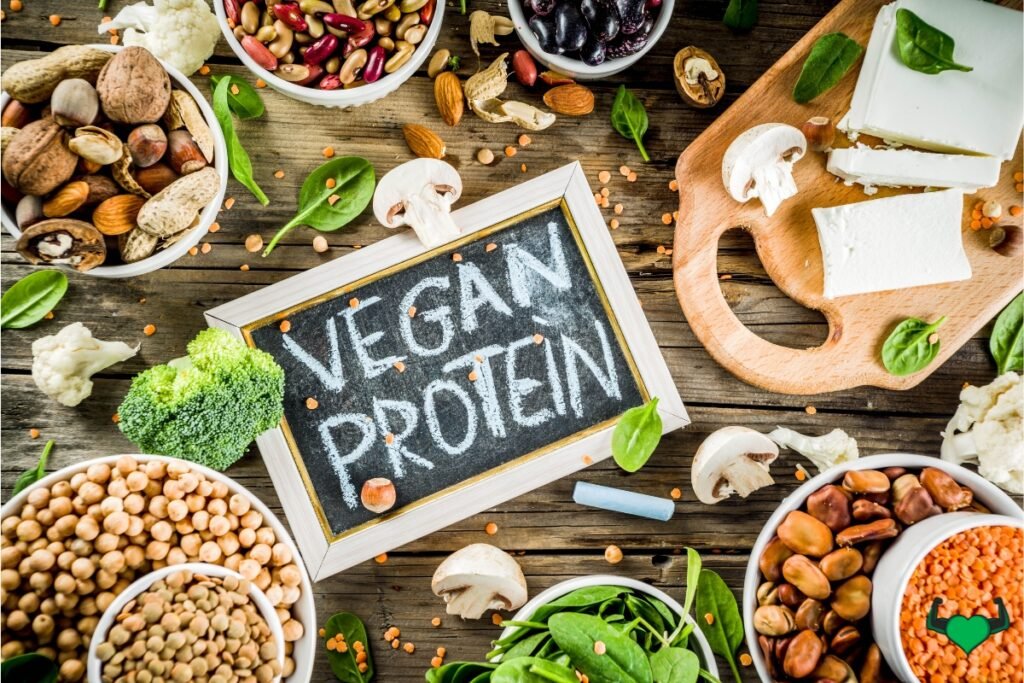
Importance of protein for muscle growth and recovery
Protein is a crucial essential nutrient for vegan athletes, playing a vital role in muscle growth and recovery. It provides the building blocks (amino acids) necessary for repairing and building new muscle tissue after intense workouts. Adequate protein intake helps reduce muscle soreness, speeds up recovery time, and supports overall athletic performance. For vegan athletes, meeting protein requirements through plant-based sources is key to maintaining and improving muscle mass, strength, and endurance.
Complete vs. incomplete proteins in plant-based diets
For vegan athletes, understanding complete vs. incomplete proteins is crucial. Complete proteins contain all nine essential amino acids and are typically found in animal products. Most plant proteins are incomplete, lacking one or more essential amino acids. However, by combining different plant protein sources (like rice and beans) or consuming complete plant proteins such as quinoa and soy, vegan athletes can easily meet their protein needs. This protein complementation ensures they obtain all essential amino acids necessary for muscle growth, recovery, and optimal athletic performance.
Top vegan protein sources
Vegan athletes can obtain essential nutrients, especially protein, from various plant-based sources. Top vegan protein sources include:
- Legumes: Lentils, chickpeas, black beans
- Quinoa: A complete protein grain
- Tofu and tempeh: Versatile soy products
- Seitan: High-protein wheat gluten
- Plant-based protein powders: Pea, hemp, or rice protein
- Nuts and seeds: Almonds, pumpkin seeds, chia seeds
- Nutritional yeast: B12-fortified protein source
These foods provide not only protein but also other essential nutrients, making them valuable components of a vegan athlete’s diet for muscle growth, recovery, and overall performance.
Strategies to enhance iron absorption (pairing with vitamin C)
For vegan athletes, optimizing iron absorption is crucial. A key strategy is pairing iron-rich plant foods with vitamin C sources. Vitamin C significantly enhances the absorption of non-heme iron found in plant-based diets. For example, combine leafy greens with citrus fruits, or add bell peppers to lentil dishes. Avoid consuming iron-rich foods with calcium or tannins (in tea and coffee), as these inhibit absorption. Cooking in cast-iron pans can also increase iron content in meals. These techniques help vegan athletes maintain adequate iron levels for optimal oxygen transport and athletic performance.
Iron: The Oxygen-Carrying Superhero
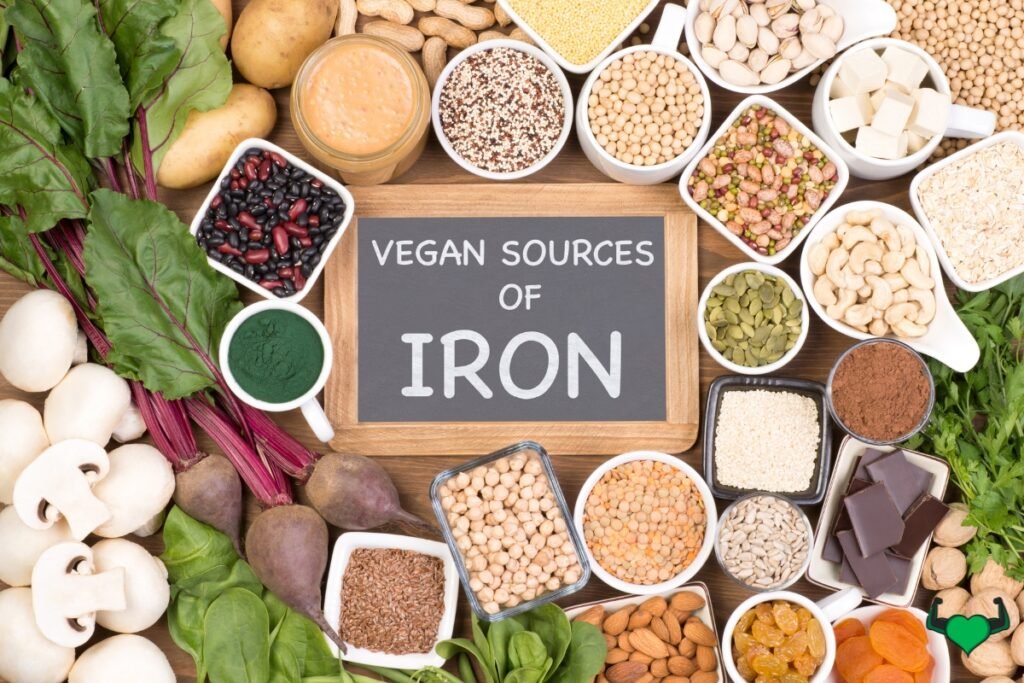
Role of iron in athletic performance
Iron plays a crucial role in athletic performance and is one of the essential nutrients for vegan athletes. It’s vital for forming hemoglobin, which transports oxygen to muscles during exercise. Adequate iron levels enhance endurance, reduce fatigue, and improve overall athletic performance. Iron also supports energy production and cognitive function. For vegan athletes, who may be at higher risk of iron deficiency due to lower absorption of non-heme iron from plant sources, maintaining optimal iron levels is key to peak performance and recovery.
Heme vs. non-heme iron absorption
For vegan athletes, understanding iron absorption is crucial. Heme iron, found in animal products, is more easily absorbed by the body (15-35% absorption rate). Non-heme iron, present in plant foods, has a lower absorption rate (2-20%). Vegan athletes rely solely on non-heme iron sources, making it essential to consume higher quantities and employ strategies to enhance absorption. These include pairing iron-rich foods with vitamin C, avoiding iron inhibitors like tannins, and using iron cookware. Proper iron intake and absorption are vital for maintaining energy levels and optimal athletic performance on a plant-based diet.
Best plant-based iron sources
Vegan athletes can obtain iron, an essential nutrient, from various plant-based sources:
- Leafy greens: Spinach, kale, and Swiss chard
- Legumes: Lentils, chickpeas, and soybeans
- Fortified foods: Breakfast cereals and plant-based milks
- Whole grains: Quinoa and oats
- Nuts and seeds: Pumpkin seeds and cashews
- Dried fruits: Raisins and apricots
- Blackstrap molasses
These iron-rich foods help vegan athletes maintain adequate iron levels for optimal oxygen transport, energy production, and athletic performance. Combining these sources with vitamin C-rich foods enhances iron absorption, crucial for plant-based diets.
Strategies to enhance iron absorption (pairing with vitamin C)
Vegan athletes can enhance iron absorption, a key essential nutrient, by pairing iron-rich plant foods with vitamin C sources. This strategy significantly boosts the absorption of non-heme iron. Examples include:
- Adding citrus fruits to iron-rich meals
- Combining leafy greens with bell peppers
- Drinking orange juice with iron-fortified cereals
- Sprinkling lemon juice on lentil dishes
Additionally, avoid consuming iron sources with calcium or tannins (in tea and coffee), as these inhibit absorption. Cooking in cast-iron pans can also increase iron content in meals. These techniques help vegan athletes maintain optimal iron levels for peak performance and recovery.
B12: The Energy-Boosting Essential
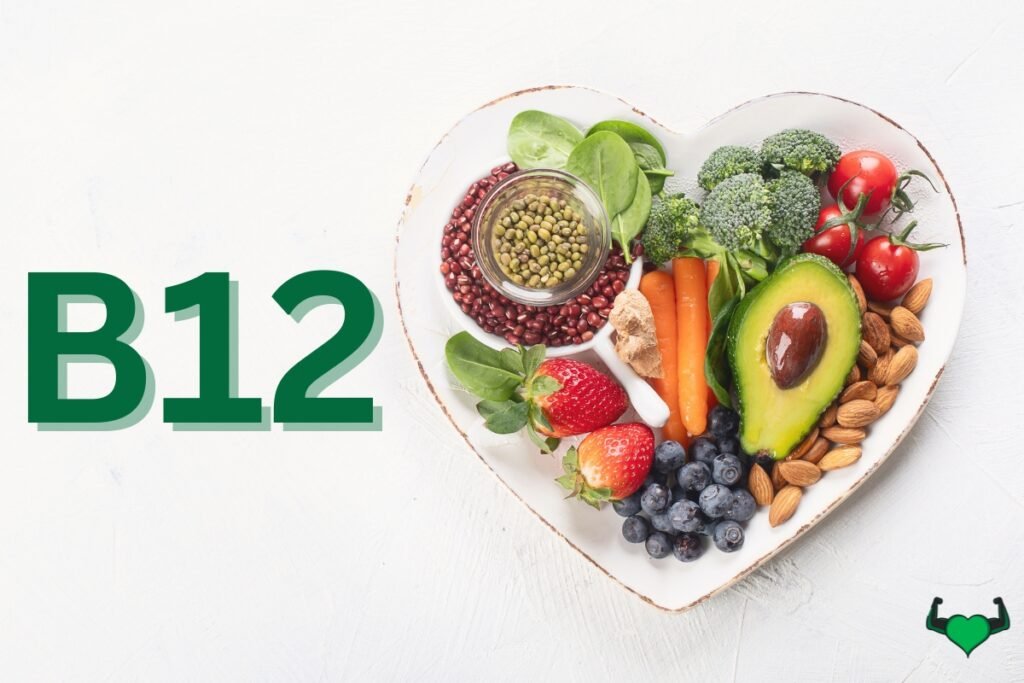
Why B12 is crucial for vegan athletes
Vitamin B12 is a critical essential nutrient for vegan athletes. It plays a vital role in red blood cell formation, nerve function, and DNA synthesis. B12 is crucial for energy production, which directly impacts athletic performance and endurance. It also supports proper brain function and helps prevent anemia. Since B12 is primarily found in animal products, vegan athletes are at high risk of deficiency. Adequate B12 intake through fortified foods or supplements is essential to maintain optimal health, prevent fatigue, and ensure peak athletic performance on a plant-based diet.
Symptoms of B12 deficiency
Vegan athletes should be aware of B12 deficiency symptoms, as this essential nutrient is crucial for performance. Common signs include:
- Extreme fatigue
- Weakness
- Shortness of breath
- Dizziness
- Pale or yellowed skin
- Mood changes
- Memory problems
- Numbness or tingling in hands and feet
- Poor balance
- Glossitis (inflamed tongue)
These symptoms can significantly impact athletic performance and overall health. Vegan athletes must prioritize B12 intake through fortified foods or supplements to prevent deficiency and maintain optimal fitness levels.
Conversion of ALA to EPA and DHA
For vegan athletes, omega-3 fatty acids are essential nutrients. Plant sources like flaxseeds and chia seeds contain alpha-linolenic acid (ALA), which the body must convert to EPA (Eicosapentaenoic acid) and DHA (Docosahexaenoic acid)—the forms found in fish oil. However, this conversion is inefficient, with only about 5-10% of ALA converting to EPA and 2-5% to DHA. Vegan athletes may need to consume higher amounts of ALA-rich foods or consider algae-based EPA/DHA supplements to ensure adequate intake for anti-inflammatory benefits and optimal performance. Balancing omega-3s is crucial for recovery and overall health in plant-based athletic diets.
Considerations for supplementation
Vegan athletes should consider algae-based omega-3 supplements to ensure adequate EPA and DHA intake, essential nutrients often lacking in plant-based diets. These supplements provide a direct source of EPA and DHA, bypassing the inefficient conversion from ALA found in plant foods. Algae-based options are sustainable and free from ocean contaminants. When choosing a supplement, look for third-party tested products with appropriate dosages. Consult a healthcare professional to determine individual needs based on diet, training intensity, and health goals. Proper omega-3 supplementation can support cardiovascular health, reduce inflammation, and enhance recovery for vegan athletes.
Calcium: Building Strong Bones and Muscles
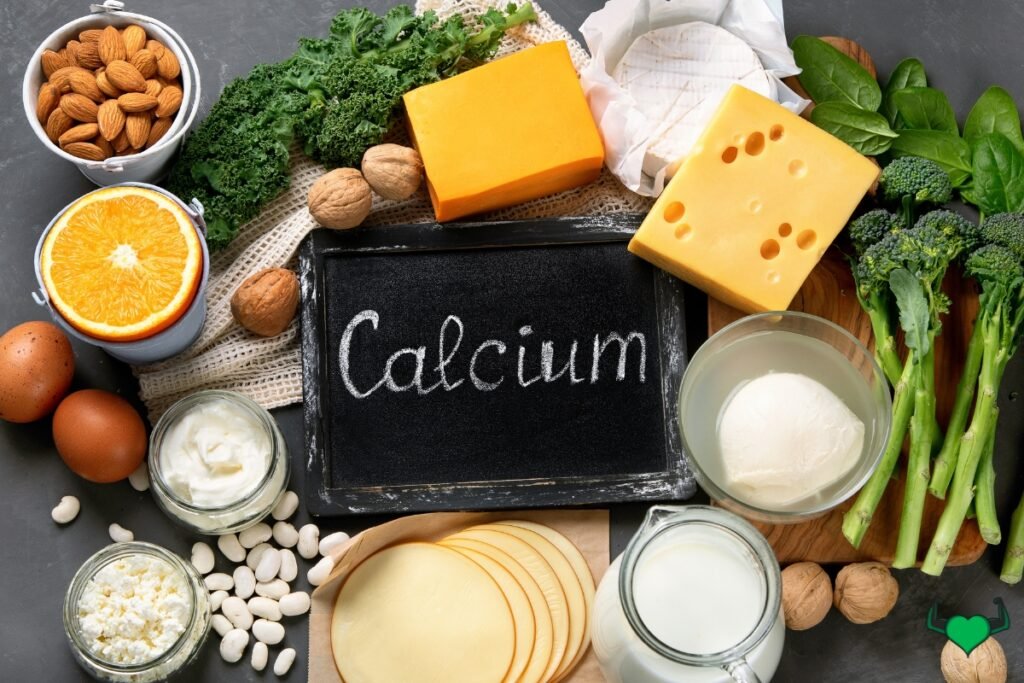
Importance of calcium for bone health and muscle function
Calcium is a crucial essential nutrient for vegan athletes, playing a vital role in bone health and muscle function. It maintains strong bones and teeth, reducing the risk of stress fractures during intense training. Calcium is also essential for muscle contraction, nerve signaling, and blood clotting. Adequate intake supports overall athletic performance by enhancing muscle strength and coordination. For vegan athletes, who may not consume dairy products, obtaining sufficient calcium from plant-based sources is critical to prevent deficiencies that could lead to weakened bones, muscle cramps, and decreased performance.
Vegan calcium sources
Vegan athletes can obtain calcium, an essential nutrient, from various plant-based sources:
- Fortified plant milks (soy, almond, oat)
- Leafy greens (kale, collard greens, bok choy)
- Calcium-set tofu
- Fortified orange juice
- Almonds and almond butter
- Sesame seeds and tahini
- Beans and lentils
- Dried figs
- Fortified cereals
- Blackstrap molasses
These calcium-rich foods help vegan athletes maintain strong bones, support muscle function, and prevent deficiencies. Combining these sources with vitamin D-rich foods or supplements enhances calcium absorption, crucial for optimal athletic performance and recovery.
Factors affecting calcium absorption (vitamin D, oxalates)
For vegan athletes, understanding factors affecting calcium absorption is crucial. Vitamin D enhances calcium uptake, so ensure adequate sun exposure or supplementation. Oxalates in some leafy greens can inhibit absorption; cooking these vegetables reduces oxalate content. Phytic acid in whole grains and legumes can also decrease absorption. To optimize calcium intake, an essential nutrient for vegan athletes:
- Pair calcium-rich foods with vitamin D sources
- Soak or sprout grains and legumes
- Consume low-oxalate greens like kale and bok choy
- Space out calcium intake throughout the day
- Limit caffeine and excess sodium, which can increase calcium excretion
These strategies help vegan athletes maintain optimal calcium levels for bone health and athletic performance.
Recommended intake for vegan athletes
Vegan athletes should aim for 1000-1200 mg of calcium daily, a crucial essential nutrient for bone health and muscle function. This can be achieved through a combination of calcium-rich plant foods and fortified products. Consume 2-3 servings of high-calcium foods such as fortified plant milks, leafy greens, and calcium-set tofu. For optimal absorption, spread intake throughout the day in 300-500 mg portions. Consider a low-dose calcium supplement if dietary intake falls short. Pair calcium sources with vitamin D to enhance absorption. Regular bone density scans can help monitor calcium status and adjust intake as needed for peak athletic performance.
Zinc: The Recovery and Immune System Booster
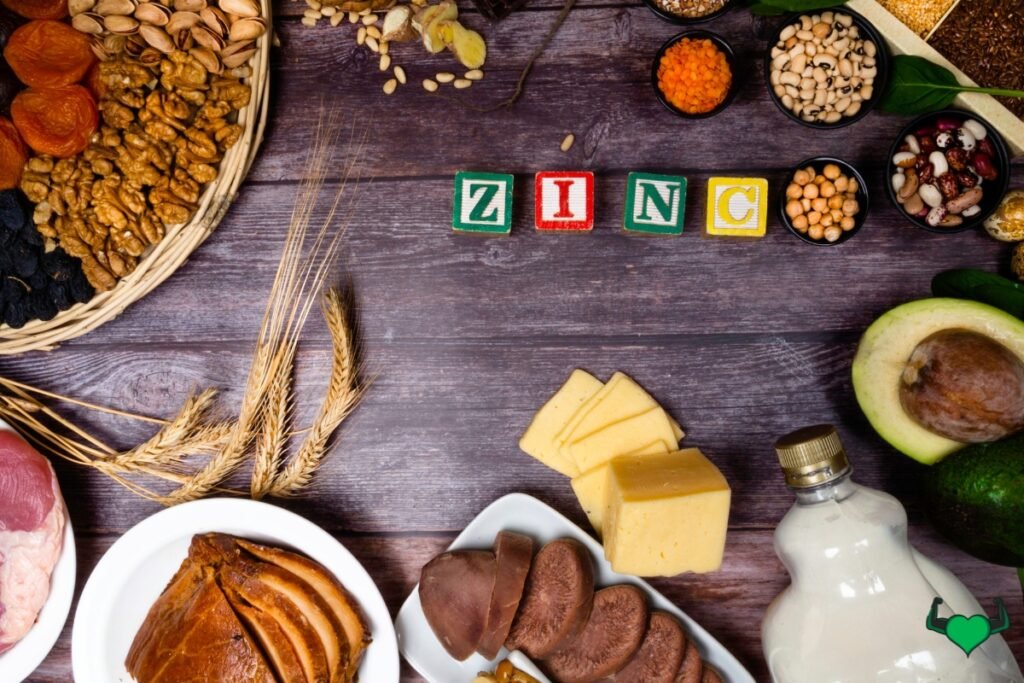
Role of zinc in protein synthesis and immune function
Zinc is a crucial essential nutrient for vegan athletes, playing a vital role in protein synthesis and immune function. It aids in the production and repair of muscle tissue, supporting recovery after intense workouts. Zinc is also essential for enzyme function and DNA synthesis. For the immune system, zinc helps produce and activate T-cells, which fight infections. Adequate zinc intake can reduce the risk of exercise-induced immune suppression, helping athletes stay healthy during training. Vegan athletes should prioritize zinc-rich plant foods or consider supplementation to maintain optimal performance and recovery.
Plant-based zinc sources (pumpkin seeds, chickpeas, oats)
Vegan athletes can obtain zinc, an essential nutrient, from various plant-based sources:
- Pumpkin seeds
- Chickpeas
- Oats
- Lentils
- Almonds
- Cashews
- Quinoa
- Hemp seeds
- Tofu
- Whole grain bread
These zinc-rich foods support protein synthesis, immune function, and recovery. Vegan athletes should incorporate a variety of these sources into their diet to meet zinc requirements. Soaking or sprouting legumes and grains can enhance zinc absorption. Combining these foods with vitamin C sources may also improve uptake, ensuring optimal athletic performance and overall health.
Strategies to improve zinc absorption
To improve zinc absorption, an essential nutrient for vegan athletes, try these strategies:
- Soak or sprout legumes, grains, and seeds to reduce phytates
- Consume fermented foods like tempeh or miso
- Pair zinc-rich foods with vitamin C sources
- Use leavened bread instead of unleavened
- Avoid consuming zinc sources with high-calcium foods
- Moderate coffee and tea intake with zinc-rich meals
- Consider zinc supplements if dietary intake is insufficient
These techniques can enhance zinc bioavailability from plant sources, supporting protein synthesis, immune function, and recovery for vegan athletes. Combine multiple strategies for optimal zinc absorption and athletic performance.
Signs of zinc deficiency in athletes
Vegan athletes should be aware of zinc deficiency signs, as zinc is an essential nutrient for performance. Common indicators include:
- Decreased endurance and strength
- Slow wound healing
- Frequent infections or colds
- Loss of appetite
- Hair loss
- Impaired taste and smell
- Skin problems (rashes, acne)
- Poor concentration and mental fatigue
- Delayed muscle recovery
- Reduced testosterone levels in males
These symptoms can significantly impact athletic performance. Vegan athletes should monitor their zinc intake through plant-based sources or consider supplementation to maintain optimal health and performance levels.
Vitamin D: The Sunshine Vitamin for Performance
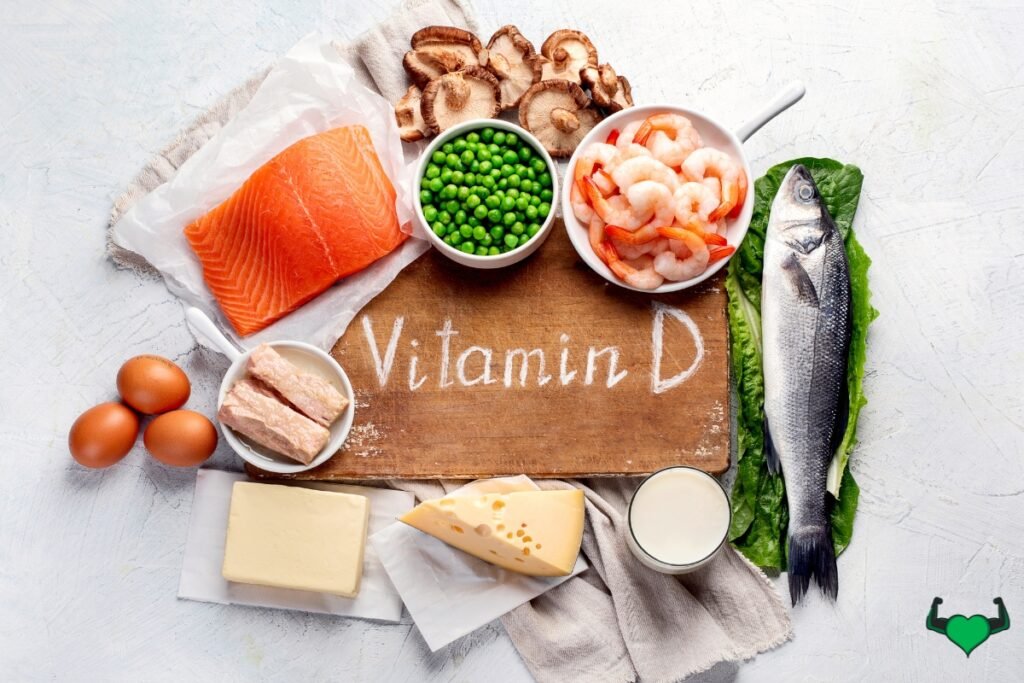
Impact of vitamin D on muscle strength and recovery
Vitamin D is a crucial essential nutrient for vegan athletes, significantly impacting muscle strength and recovery. It enhances muscle protein synthesis, improves muscle contraction, and reduces inflammation. Adequate vitamin D levels contribute to increased muscle strength, power, and overall athletic performance. It also accelerates post-exercise recovery by reducing muscle damage and soreness. For vegan athletes, who may have limited dietary sources, maintaining optimal vitamin D status through sun exposure or supplementation is vital for maximizing strength gains, preventing injuries, and supporting faster recovery between training sessions.
Limited vegan sources of vitamin D
Vegan athletes face limited dietary sources of vitamin D, an essential nutrient for performance. The main vegan sources include:
- Fortified plant milks
- Fortified orange juice
- Fortified cereals
- UV-exposed mushrooms
- Some brands of fortified tofu
- Algae-based supplements
Due to these limited options, many vegan athletes rely on sun exposure and supplementation to meet their vitamin D needs. It’s crucial for vegan athletes to monitor their vitamin D status and consider supplements, especially if they live in areas with limited sunlight or have darker skin tones, to support muscle strength, recovery, and overall health.
Importance of sun exposure and supplementation
For vegan athletes, sun exposure and supplementation are crucial for obtaining vitamin D, an essential nutrient often lacking in plant-based diets. Sun exposure triggers vitamin D synthesis in the skin, but factors like latitude, season, and skin pigmentation can limit production. Aim for 10-30 minutes of midday sun exposure several times a week. However, this may not be sufficient, especially in winter or for those with darker skin. Supplementation becomes vital to maintain optimal levels. Vegan-friendly vitamin D3 supplements derived from lichen can help ensure adequate intake, supporting bone health, muscle function, and immune system performance for plant-based athletes.
Recommended levels for optimal athletic performance
For optimal athletic performance, vegan athletes should maintain vitamin D levels between 40-60 ng/mL (100-150 nmol/L). This essential nutrient supports muscle strength, recovery, and overall health. To achieve this, most vegan athletes need 2000-4000 IU of vitamin D3 daily through a combination of limited sun exposure and supplementation. However, individual needs may vary based on factors like skin tone, latitude, and training intensity. Regular blood tests can help monitor levels and adjust intake accordingly. Maintaining optimal vitamin D status is crucial for vegan athletes to maximize performance, reduce injury risk, and support immune function.
Creatine: The Vegan Athlete’s Secret Weapon
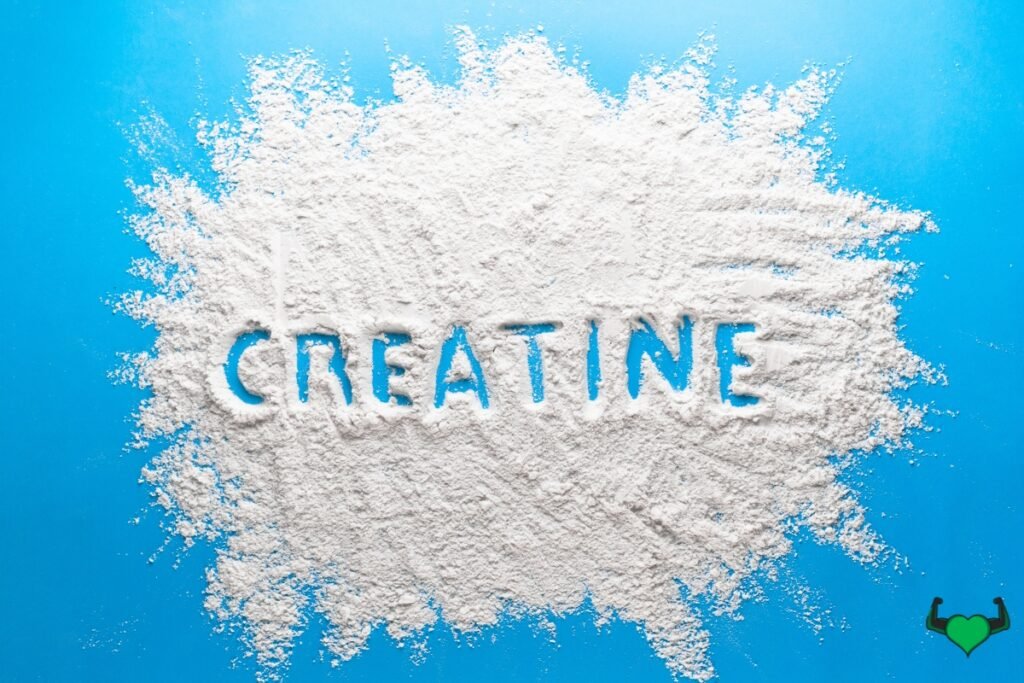
Benefits of creatine for strength and power athletes
Creatine is a vital essential nutrient for vegan strength and power athletes. Benefits include:
- Increased muscle strength and power output
- Enhanced anaerobic performance
- Improved muscle recovery
- Increased muscle mass and size
- Better cognitive function and focus
- Reduced muscle damage and inflammation
- Enhanced glycogen replenishment
Creatine supplementation can be especially beneficial for vegan athletes, as plant-based diets are naturally low in creatine. It allows for more intense training sessions, faster recovery, and improved overall performance in high-intensity, short-duration activities. For vegan athletes focusing on strength and power, creatine supplementation can help bridge the nutritional gap and support optimal athletic performance.
Natural creatine production in vegan diets
Vegan athletes naturally produce creatine, an essential nutrient for performance, but at lower levels compared to omnivores. The body synthesizes creatine from amino acids glycine, arginine, and methionine. However, plant-based diets typically provide fewer of these precursors, especially methionine. Additionally, vegan diets lack external creatine sources found in meat and fish. This results in lower muscle creatine stores for vegan athletes, potentially impacting high-intensity, short-duration activities. To compensate, vegan athletes may need to focus on consuming foods rich in creatine precursors or consider supplementation to optimize their creatine levels for peak athletic performance.
Supplementation options and dosage recommendations
Creatine supplementation is an important consideration for vegan athletes seeking optimal performance. Options include:
- Synthetic creatine monohydrate (most common and researched)
- Creatine hydrochloride
- Micronized creatine
Dosage recommendations:
- Loading phase: 20g/day for 5-7 days, split into 4 doses
- Maintenance phase: 3-5g/day
Some athletes prefer skipping the loading phase and starting with the maintenance dose. Creatine is one of the essential nutrients for vegan athletes that may require supplementation. Always choose vegan-certified products and consult with a sports nutritionist to determine the best protocol for individual needs and goals.
Potential performance gains for vegan athletes
Creatine supplementation offers significant potential performance gains for vegan athletes, addressing a key gap in essential nutrients. Benefits include:
- 5-15% increase in maximal strength
- 1-5% improvement in sprint performance
- 5-15% enhancement in work capacity during high-intensity exercise
- 1-3% boost in lean body mass
- Faster post-exercise recovery
- Improved cognitive function during intense training
These gains are particularly valuable for vegan athletes, who naturally have lower creatine stores. By supplementing, they can level the playing field with omnivorous athletes, potentially seeing more dramatic improvements due to their initially lower baseline levels. This makes creatine a crucial consideration for vegan athletes aiming to optimize strength, power, and overall performance.
Iodine: The Thyroid’s Best Friend
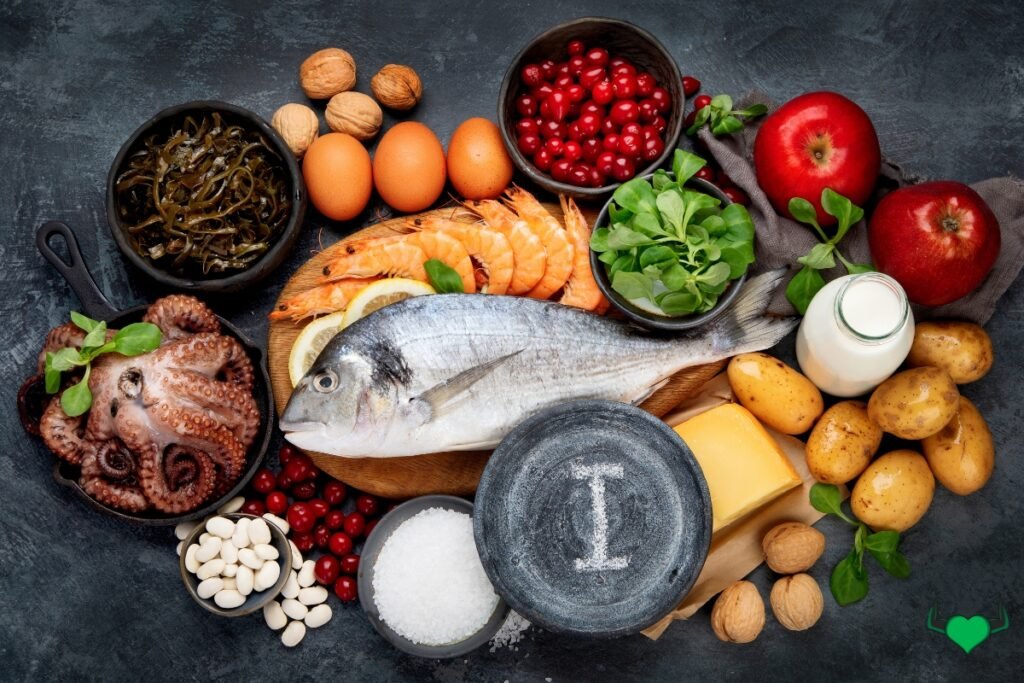
Role of iodine in metabolism and energy production
Iodine is a crucial essential nutrient for vegan athletes, playing a vital role in metabolism and energy production. It’s necessary for the synthesis of thyroid hormones, which regulate:
- Basal metabolic rate
- Cellular energy production
- Protein synthesis
- Nutrient utilization
- Oxygen consumption
- Body temperature regulation
Adequate iodine intake ensures optimal thyroid function, which is critical for maintaining energy levels, supporting muscle function, and promoting efficient recovery. For vegan athletes, who may have limited dietary sources of iodine, ensuring sufficient intake is essential to maintain peak performance and overall metabolic health.
Vegan sources of iodine (seaweed, iodized salt)
Vegan athletes can obtain iodine, an essential nutrient for metabolism and energy production, from several plant-based sources:
- Seaweed (nori, wakame, kombu)
- Iodized salt
- Fortified plant milks
- Prunes
- Lima beans
- Iodine supplements (if needed)
Seaweed is the richest vegan source, but intake should be monitored due to varying iodine content. Iodized salt provides a consistent amount, but athletes should balance sodium intake. Incorporating these sources into a balanced diet helps vegan athletes meet their iodine requirements for optimal thyroid function and athletic performance.
Risks of iodine deficiency for athletes
Iodine deficiency poses significant risks for vegan athletes, as it’s one of the essential nutrients often overlooked in plant-based diets. Risks include:
- Reduced metabolic rate
- Decreased energy production
- Impaired muscle function
- Slower recovery times
- Fatigue and weakness
- Reduced cognitive function
- Compromised thermoregulation
- Decreased endurance
- Potential thyroid dysfunction
- Impaired protein synthesis
These effects can severely impact athletic performance and overall health. Vegan athletes must ensure adequate iodine intake through seaweed, iodized salt, or supplements to maintain optimal thyroid function and support peak physical performance.
Balancing iodine intake without overconsumption
Balancing iodine intake is crucial for vegan athletes, as it’s an essential nutrient that can be harmful in excess. To achieve balance:
- Use iodized salt in moderation
- Consume seaweed 1-2 times weekly, avoiding high-iodine varieties like kelp
- If using supplements, choose those providing 150-290 mcg/day
- Monitor iodine content in plant-based milk alternatives
- Be cautious with iodine-rich foods if you have thyroid issues
- Consider periodic iodine level testing
Aim for the recommended daily intake of 150 mcg, but don’t exceed 1,100 mcg. Proper balance ensures optimal thyroid function and athletic performance without risking iodine toxicity.
Magnesium: The Muscle and Recovery Mineral
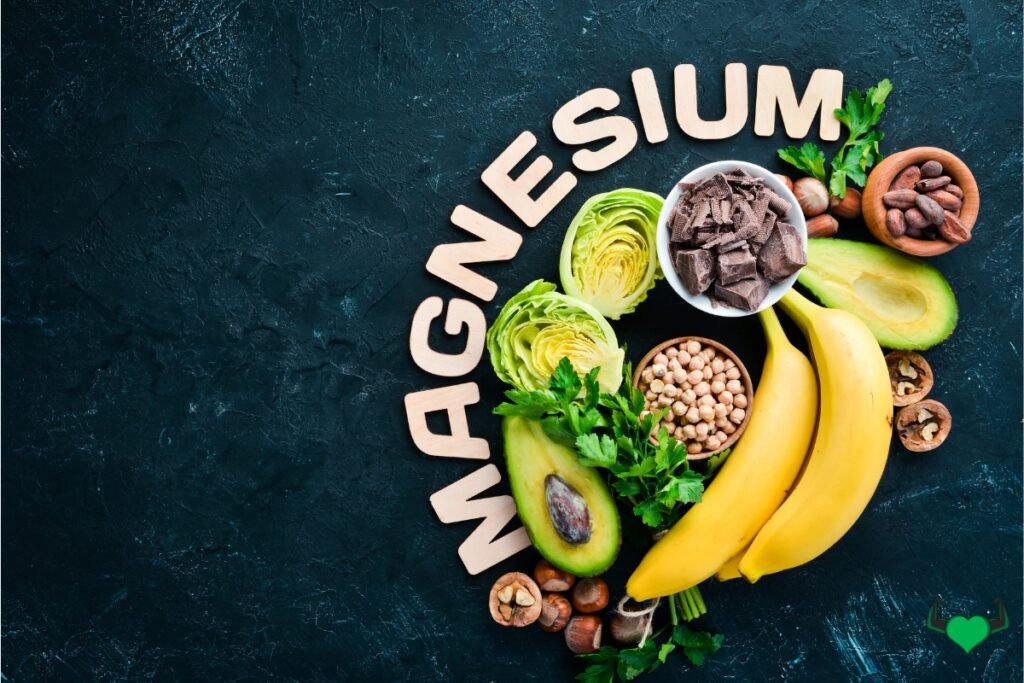
Functions of magnesium in athletic performance
Magnesium is a crucial essential nutrient for vegan athletes, playing multiple roles in athletic performance:
- Energy production: Aids ATP synthesis
- Muscle function: Supports contraction and relaxation
- Protein synthesis: Essential for muscle growth and repair
- Electrolyte balance: Regulates muscle and nerve function
- Oxygen uptake: Improves aerobic capacity
- Hormone regulation: Supports testosterone production
- Bone health: Contributes to bone density
- Glycogen metabolism: Enhances endurance
- Nervous system function: Reduces muscle cramps
- Recovery: Assists in reducing inflammation and oxidative stress
Adequate magnesium intake can improve strength, power, endurance, and recovery for vegan athletes, making it a key nutrient for optimal performance.
Plant-based magnesium sources (nuts, seeds, whole grains)
Vegan athletes can obtain magnesium, an essential nutrient for performance, from various plant-based sources:
- Nuts: Almonds, cashews, Brazil nuts
- Seeds: Pumpkin seeds, sunflower seeds, chia seeds
- Whole grains: Quinoa, brown rice, oats
- Legumes: Black beans, lentils, chickpeas
- Leafy greens: Spinach, Swiss chard, kale
- Avocados
- Dark chocolate (70%+ cocoa)
- Bananas
- Fortified plant-based milk alternatives
- Tofu
Incorporating a variety of these magnesium-rich foods into their diet helps vegan athletes meet their requirements for muscle function, energy production, and recovery. Aim for diverse sources to ensure optimal intake of this crucial mineral.
Signs of magnesium deficiency in athletes
Vegan athletes should be aware of magnesium deficiency signs, as it’s an essential nutrient for performance. Common indicators include:
- Muscle cramps and spasms
- Fatigue and weakness
- Decreased endurance
- Poor recovery after workouts
- Insomnia or disturbed sleep
- Anxiety and irritability
- Irregular heartbeat
- Decreased bone density
- Reduced protein synthesis
- Impaired glucose metabolism
These symptoms can significantly impact athletic performance and overall health. Vegan athletes should ensure adequate magnesium intake through plant-based sources or consider supplementation to maintain optimal levels for peak performance and recovery.
Potential benefits of magnesium for recovery and sleep
Magnesium, an essential nutrient for vegan athletes, offers significant benefits for recovery and sleep:
- Reduces muscle soreness and inflammation
- Enhances protein synthesis for muscle repair
- Improves sleep quality and duration
- Regulates stress hormones like cortisol
- Supports melatonin production for better sleep cycles
- Aids in relaxation of muscles and nervous system
- Enhances glycogen resynthesis post-exercise
- Helps maintain electrolyte balance
- Supports bone health during recovery
- May reduce symptoms of exercise-induced asthma
Adequate magnesium intake can lead to faster recovery times, better sleep, and improved overall performance for vegan athletes. Prioritizing this mineral in the diet or through supplementation can significantly enhance athletic recovery and sleep quality.
Conclusion
There you have it, plant-powered athletes – the top 10 essential nutrients to fuel your vegan fitness journey! By focusing on these key nutrients, you’ll be well on your way to smashing your athletic goals while staying true to your plant-based lifestyle. Remember, everyone’s needs are unique, so don’t hesitate to consult with a sports nutritionist to fine-tune your diet. With the right approach, you can prove that vegan athletes are a force to be reckoned with. So go ahead, load up on those leafy greens, legumes, and fortified foods – your body (and your performance) will thank you. Now get out there and show the world what plant-based power can do!

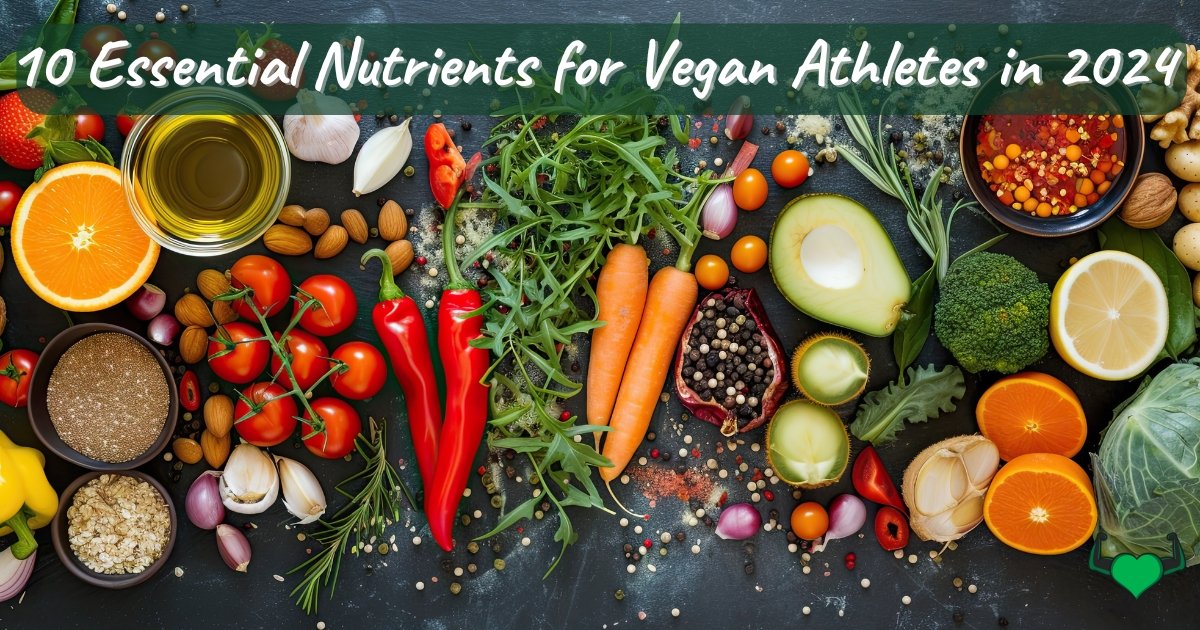



Pingback: Best Vegan Multivitamins for 2024: Top Choices for Optimal Nutrition - VitalityFitHub